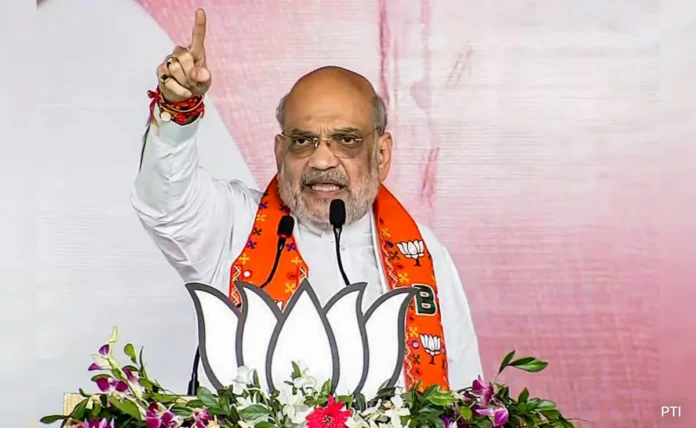Union Home Minister Amit Shah on Tuesday celebrated Chandigarh becoming the first region in India to fully implement the landmark Bharatiya Nyay Sanhita (BNS), Bharatiya Nagrik Suraksha Sanhita (BNSS), and Bharatiya Sakshya Adhiniyam (BSA). Shah expressed confidence that these new criminal laws would be implemented nationwide within three years.
Speaking at a program dedicating the new laws to the nation, Shah called it a “golden day for the Indian criminal justice system,” emphasizing the shift from colonial-era legal frameworks to a more justice-oriented system designed for modern India.
New Era of Justice
Shah highlighted that the previous laws—the Indian Penal Code (IPC), Code of Criminal Procedure (CrPC), and Evidence Act—were relics of British colonial rule.
“Earlier laws were 160 years old—made in the British parliament for the protection of British rule, not for the people. The laws introduced by PM Modi are made by Indians, for Indians,” he said.
The new laws, he explained, focus on delivering justice rather than punishment, with a modern approach incorporating transparency and efficiency.
Key Reforms Introduced
- Director of Prosecution: A new post has been created to combat corruption.
- Sedition Rebranded: The term “rajdroh” (sedition) has been replaced with “deshdroh” (treason).
- Streamlined Justice: In just four months since partial implementation, over 11 lakh FIRs have been registered, and 9,500 cases resolved.
Prime Minister Modi’s Address
Prime Minister Narendra Modi, also present at the event, underscored the historic significance of the new laws.
“The old criminal laws were tools of oppression and exploitation designed to enslave Indians. Unfortunately, even after independence, these laws persisted. The Nyay Sanhita marks a transformation, strengthening the spirit of democracy: ‘Of the People, By the People, For the People,'” he said.
The PM highlighted the extensive consultations involved in drafting the new laws, including inputs from Chief Justices, judicial bodies, legal experts, and civil society.
“These laws reflect the aspirations of contemporary India, ensuring transparency, efficiency, and adaptability in our legal system,” he added.
Nationwide Implementation by 2024
The three laws, implemented nationwide starting July 1, 2024, aim to modernize India’s legal framework to align with the evolving needs of society while removing the vestiges of colonial rule.
As Chandigarh sets an example, these reforms signal a significant step toward a more just and equitable legal system in India.


